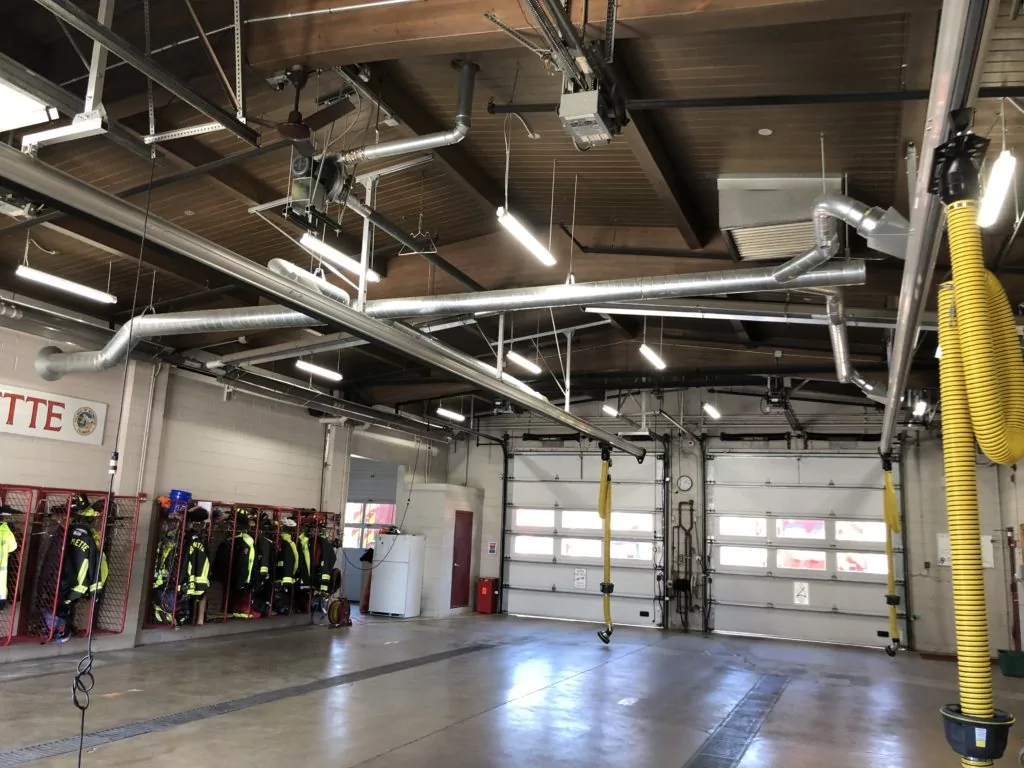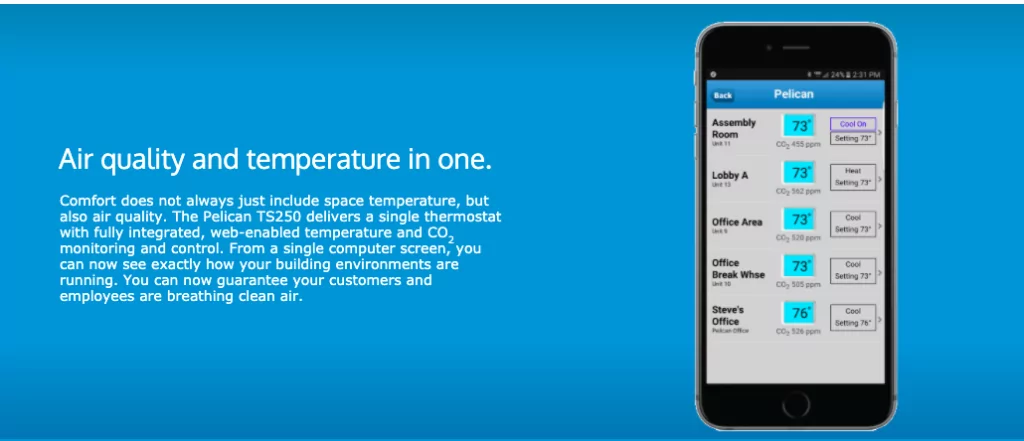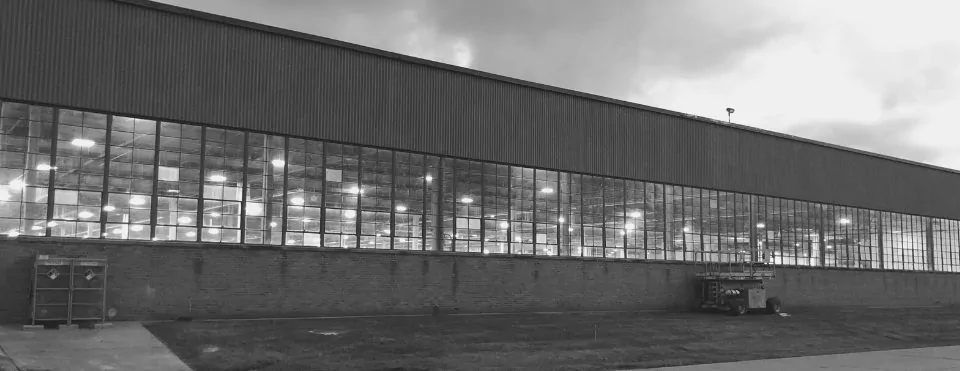The Impact of Poor Building Energy Controls on Your Bottom Line

Nov 23 2023
The Impact of Poor Building Controls on Your Bottom Line
In today’s business world, where every dollar counts, it is more important than ever to be mindful of expenses. One often-overlooked area where businesses can save money is through effective building control. Poor building controls can lead to a significant increase in energy consumption, maintenance costs, and occupant dissatisfaction, all of which can have a negative impact on your bottom line.
Buildings energy usage can be controlled by a Building Automation System, or even a simple smart thermostat system. Both have their usages, and both prevent money from flowing outside of your windows and doors.
Increased Energy Consumption
One of the most immediate and noticeable impacts of poor building controls is increased energy consumption. Without proper controls, HVAC systems, lighting, and other energy-consuming equipment may operate inefficiently, leading to wasted energy and higher utility bills. According to the U.S. Department of Energy, poor building controls can account for up to 30% of a building’s energy consumption.
Higher Maintenance Costs
Poor building controls can also lead to higher maintenance costs. When equipment is not properly controlled, it is more likely to malfunction or break down, requiring more frequent repairs and replacements. Additionally, poorly maintained equipment often operates less efficiently, leading to increased energy consumption and higher utility bills.
Reduced Occupant Productivity
In addition to the financial costs, poor building controls can also have a negative impact on occupant productivity. When the indoor environment is uncomfortable or unhealthy, it can lead to decreased focus, increased absenteeism, and higher rates of employee turnover. A study by the National Institute for Occupational Safety and Health (NIOSH) found that a comfortable indoor environment can improve employee productivity by up to 8%.
Reduced occupant productivity can have a significant impact on individuals, businesses, and the overall economy. Here are some of the potential consequences:
Individual Consequences:
- Increased stress and anxiety: When employees are unable to meet deadlines or complete tasks to their usual standards, it can lead to increased stress and anxiety. This can have a negative impact on their mental and physical health, leading to burnout, absenteeism, and even presenteeism (being physically present at work but not mentally engaged).
- Reduced job satisfaction: If employees feel like they are constantly struggling to keep up with their workload, it can lead to reduced job satisfaction. This can make it difficult to retain top talent and can also lead to higher turnover rates.
- Decreased morale: When morale is low, it can create a negative atmosphere in the workplace. This can make it difficult for employees to work together effectively and can also lead to increased conflict and absenteeism.
Business Consequences:
- Missed deadlines and lost opportunities: When employees are not productive, it can lead to missed deadlines and lost opportunities. This can damage a company’s reputation and make it difficult to compete in the marketplace.
- Increased costs: Reduced productivity can also lead to increased costs for businesses. For example, companies may need to hire additional employees to compensate for the lost productivity, or they may need to pay overtime to employees who are working to meet deadlines.
- Decreased profitability: Ultimately, reduced productivity can lead to decreased profitability for businesses. This can make it difficult for companies to invest in growth and innovation, and it can even put them at risk of bankruptcy.
Overall Economic Consequences:
- Reduced economic growth: When businesses are not productive, it can have a ripple effect on the overall economy. Reduced productivity can lead to slower economic growth, higher unemployment, and decreased tax revenue.
- Decreased competitiveness: In a global economy, it is important for businesses to be competitive. Reduced productivity can make it difficult for businesses to compete with companies from other countries that have a more productive workforce.
- Increased social costs: Reduced productivity can also lead to increased social costs. For example, when people are unemployed, they are more likely to rely on government assistance. This can put a strain on social programs and can lead to increased taxes for everyone.
Steps to Improve Building Controls
Fortunately, there are a number of steps that businesses can take to improve their building controls and reap the associated benefits. Some of the most effective measures include:
- Conducting a building energy audit: A building energy audit can identify areas where energy is being wasted and recommend specific measures for improvement.
- Installing energy-efficient equipment: Replacing old, inefficient equipment with energy-efficient models can significantly reduce energy consumption.
- Implementing occupancy sensors and timers: Occupancy sensors and timers can automatically turn off lights and other equipment when not in use, saving energy.
- Upgrading to a Building Automation System (BAS): A BAS can centrally control and monitor all of the building’s systems, optimizing energy usage and preventing equipment malfunctions.
- Regularly maintaining equipment: Regular maintenance can help to prevent equipment breakdowns and extend its lifespan.
Conclusion
The benefits of effective building controls are clear: lower energy costs, reduced maintenance expenses, and improved occupant productivity. By taking the necessary steps to improve their building controls, businesses can save money, improve their bottom line, and create a more comfortable and productive work environment for their employees. In today’s competitive business world, effective building control is not just a good idea, it is a necessity.
I hope this essay is helpful. Please set up an assessment to regain control of your building’s energy usage.
Featured Posts

Mar 15 2021
Energy Savings Formula
In 2002, I became a firefighter in the north suburbs of Chicago. I was young and idealistic - loving almost every part of the job. However, I had another secret passion - sustainability. In addition…
Continue Reading >

May 02 2019
Verde Energy Efficiency Experts 10 Most Sustainable Companies in Chicago
In our energy efficiency consulting firm, we constantly look for inspiration from local companies that lead and innovate in clean energy and sustainability. Not all companies have billion dollar budgets, but that doesn’t mean that…
Continue Reading >
Related Articles

Aug 23 2020
Pelican Smart Thermostat Site Manager
Commercial HVAC equipment is a huge energy user in Chicago - cooling in the summer and heating in the winter. Sensors, controls, and smart thermostats are essential to optimize equipment usage, and the Pelican smart…
Continue Reading >

Jun 24 2020
Nest Smart Thermostat Portal
Our company frequently recommends and installs smart thermostats for our commercial and public sector clients. If you are considering or have a Nest Smart Thermostat, this is a good post for you. Smart thermostats are…


